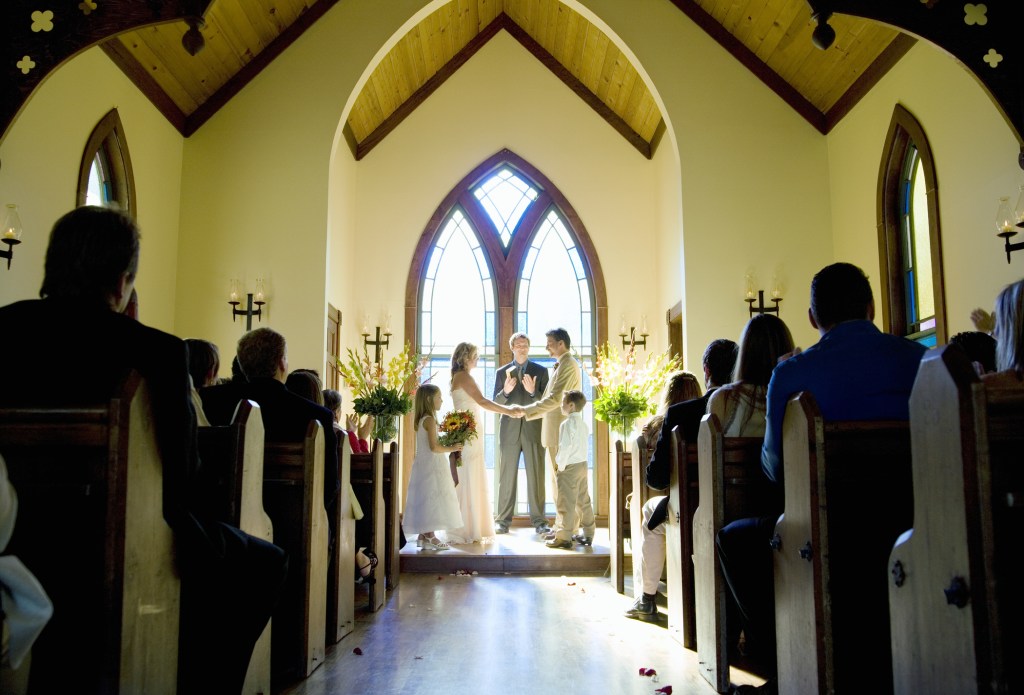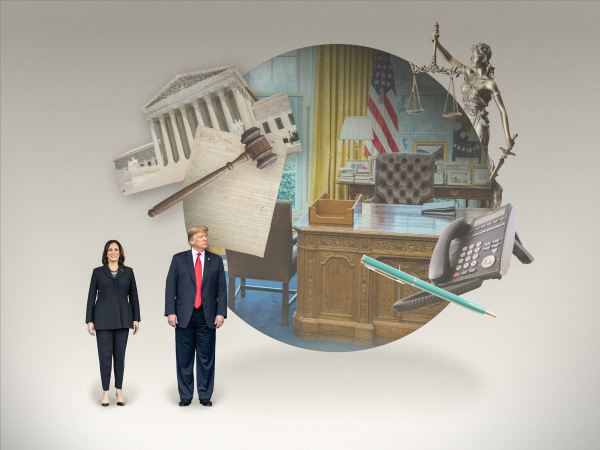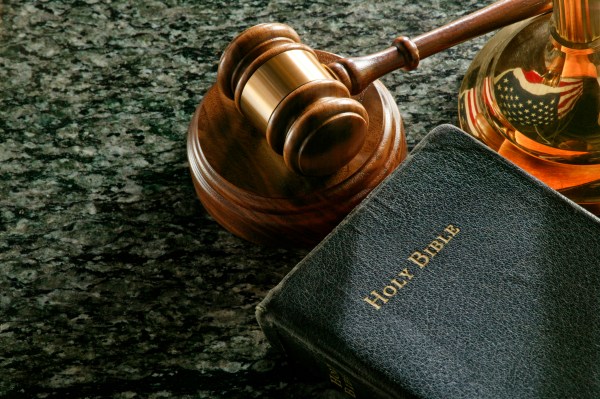It’s been an interesting few days. Ever since I wrote (first in The Atlantic and then on Sunday here in The Dispatch) in support of the Senate version of the Respect for Marriage Act, I’ve been subject to an absolute torrent of online criticism, mainly from fellow Christians. The culmination of the critiques came from Al Mohler, president of the Southern Baptist Theological Seminary, who took to the pages of World Magazine to pen a piece called “The Parable of David French.”
“This is how conservatism dies,” he wrote. “This is how marriage is surrendered.”
That’s dramatic! But it’s not as extreme as other critiques, including those who questioned whether I am truly a Christian, who told me I should face church discipline, and who compared my support for the Respect for Marriage Act to support for slavery. I kid you not.
Whew. That’s a lot. It’s always a struggle to know when to keep addressing an argument and when to just move on, but given the continued attacks—now running into their sixth day—I think it’s important to go one more round. And this time I’m going to take a bit of a different approach. I’m going to address directly, from the ground up, why the debate is so confused and why the distinctions between Christian marriage (what I’ll call “covenant marriage”) and civil marriage matter so very much.
I’m particularly interested in the various allegations of apostasy, especially given my agreement with the orthodox creeds and confessions of the church, including doctrines relating to sex, sexuality, and sexual morality. In fact, in 2019, I signed the controversial Nashville Statement, in large part because I thought it was important for Christians to offer a clear statement of orthodox Christian theology on matters of sexual controversy.
The intent of the Nashville Statement, as I understood it, was not to write a model law for a secular state, but rather to clear up confusion in Christian churches about the basics of Christian doctrine. Despite its explicitly religious purpose, it is still very helpful to the debate because it clarifies where I think discussions over marriage often go so very wrong.
Here’s the definition of marriage taken directly from the statement itself: Marriage is the “covenantal, sexual, procreative, lifelong union of one man and one woman, as husband and wife, and is meant to signify the covenant love between Christ and his bride the church.” Other faiths might have other definitions of marriage, but this is among the best Christian definitions I’ve read.
What is one of the first things you should note? That is *not* the definition of civil marriage even under American law prior to Obergefell. Marriage prior to Obergefell was governed by a series of laws in the 50 states that generally permitted divorce on no-fault or substantially no-fault grounds.
Under this legal regime, civil marriage was a quasi-contractual relationship between a man and a woman, provided they were of proper age and not too closely related. It was breakable at will. In fact, civil marriage is a less binding legal arrangement than your typical commercial contract. It’s not a true contract. It’s a quasi-contract.
In civil marriage, individuals can and do break their marriage quasi-contract for reasons that range well beyond the small number of defined justifications (such as adultery or abandonment) for a “scriptural” divorce. Then, once a civil marriage ends, the law allows a person to enter into any number of additional civil marriages provided that they are serial and not simultaneous.
The contrast with covenant marriage is simply staggering. In fact, under the definition of Christian covenant marriage outlined in the Nashville Statement, there are millions upon millions of American heterosexual couples who would not be considered properly married under ecclesiastical law.
The relationship between covenant marriage and civil marriage can be imagined as a Venn diagram. Not all civil marriages are covenant marriages, and while all covenant marriages can be civil marriages, a covenant marriage does not depend on state recognition for its religious validity. If I exchange vows with my wife, I’m married in the eyes of God even if the state never receives my marriage license.
When you understand these distinctions, you can start to understand how the two sides are often mystified by each other. Millions of people of faith who hold to the traditional teachings of their faiths know that same-sex marriage simply doesn’t fit within their theological traditions and teachings. If covenant marriage is symbolic of the union between Christ and his bride, then its opposite-sex nature is intrinsic.
This is what most Christians I know believe they’re defending when they say they’re defending marriage.
But LGBT Americans look at this and are stumped. Covenant marriage is not what marriage is under the law. America’s Christian majority already gave up that definition decades ago. Its legal meaning has shifted and changed in response to popular demand. Church pews are packed with people who might say they uphold covenant marriage, but they live as if civil marriage is the moral norm.
This is what troubled me so much when the marriage debates first truly touched off in the early 2000s. One of our local conservative “marriage activists” had been married three times. When a church full of divorcees argues marriage is sacred—or when a state creates marriage rules that are fundamentally at odds with religious definitions—I can understand why same-sex marriage activists were puzzled at the idea that “we can’t mess with marriage.”
It had already been messed with. It had already been changed. We already knew the definition and scope of civil marriage could be (and was) defined by the state for purposes advanced by the state.
The concept of no-fault divorce is alien to me as a matter of faith, but I recognize the reasons for the state interests asserted, especially considering the way in which American law turned a blind eye to domestic abuse and historically failed to grant women equal rights under law.
As a matter of faith, I don’t agree with remarriage in the absence of scriptural grounds for divorce, but I can see the state’s interest in creating legal stability in subsequent marital relationships.
In addition, I think the default posture of the state should be toward individual liberty and autonomy, absent evidence of direct harm to others. The responsibility to exercise that liberty virtuously rests with the citizen, mediated through churches, families, and other private institutions, whose liberty is also protected by the state.
Anyway, given the vast, vast gap between civil marriage and covenant marriage, I struggled with the idea that granting a relatively small number of gay couples the right to civil marriage was any kind of culture-changing threat. At the same time, I could also see how gay Americans could perceive the refusal to accommodate their requests as a form of invidious discrimination. After all, heterosexual Americans had granted themselves every legal convenience, but they drew the line at their gay brothers and sisters.
And that brings me to religious liberty. There are those who say religious liberty concerns are secondary to the primary concern over the change to the definition of civil marriage. That’s wrong. Religious liberty is no secondary concern. The instant the more-radical same-sex advocates set their sights on religious institutions—including threatening tax exemptions and the autonomy of religious schools—was the instant they set their sights on the institutions that sustain covenant marriage.
This raised the stakes. Civil marriage isn’t foundational to my faith. It’s not a cornerstone of my life. It’s not even relevant to how I raise my children. I raise them to understand and appreciate covenant marriage and to enter into faith-filled relationships that render no-fault divorce meaningless. Covenant marriage is foundational. It is a cornerstone.
So when radical activists took aim at the institutions that help foster and perpetuate what many Christians would call an actual sacramental element of their faith, they committed a grave error. These attacks threatened to violate the American social compact, which includes as the first freedom in the Bill of Rights the right of free exercise of religion.
If activists were going to take the position that saying yes to civil marriage necessarily meant saying no to covenant marriage—including by treating those private individuals and institutions who hold to covenant marriage as bigots no better than white supremacists—then I wasn’t ever going to agree to those terms. I still don’t agree with those terms.
Thankfully, my worst concerns are being addressed. Obergefell did not herald the end of religious liberty. The First Amendment is stronger than ever. The Respect for Marriage Act does not attack religious freedom. While it mostly maintains the status quo, to the extent it changes the law it reinforces the autonomy of religious institutions and protects them from punitive federal action.
And that brings me back to Al Mohler. Frankly, his piece was both dramatic and poorly reasoned. He’s not a lawyer (so I don’t want to impose too much legal rigor on him), but his “argument” about the religious liberty protections in the Respect for Marriage Act was nothing more than a series of conclusory statements. He told me the legal protections were “hogwash,” but he did not show me why they were.
Instead, he pointed to a World Magazine piece by my longtime friend Kristen Waggoner. Before I say anything else, I want to say that I’m a huge fan of Kristen’s. She’s the new president of Alliance Defending Freedom (where I used to serve as a senior counsel), and she’s not only an outstanding lawyer, she’s also an immense upgrade over the previous president, Mike Farris.
Farris, some folks may recall, played a key role in assisting Texas Attorney General Ken Paxton in his remarkably dangerous and remarkably stupid lawsuit that attempted to vacate the 2020 election results in Pennsylvania, Georgia, Michigan, and Wisconsin. The lawsuit was an embarrassment. I’m so glad Kristen now sits in Mike Farris’ chair.
At the same time, however, I’m stumped by Kristen’s summary of the bill. She says:
It imposes a new obligation to recognize same-sex relationships on religious organizations that work closely with government. It creates new tools for progressive activists and the Department of Justice to enforce that obligation. It gives the Internal Revenue Service a new argument for taking tax-exempt status away from religious non-profits. It makes religious freedom and free speech cases harder to win by elevating the federal government’s interest in same-sex marriage.
Asked how they asserted this about the IRS, a spokeswoman for ADF told The Dispatch the bill would create a “ripple effect” through government agencies, but that’s speculation contradicted by the language of the statute itself. The bill says this about exemptions and government benefits:
Nothing in this Act, or any amendment made by this Act, shall be construed to deny or alter any benefit, status, or right of an otherwise eligible entity or person, including tax-exempt status, tax treatment, educational funding, or a grant, contract, agreement, guarantee, loan, scholarship, license, certification, accreditation, claim, or defense, provided such benefit, status, or right does not arise from a marriage.
I’m not asking you to trust me. I’m just asking you to read the text of the bill. Does that language truly give the IRS a “new argument for taxing tax-exempt status away”?
And does the act create “new tools for progressive activists and the Department of Justice” to enforce an obligation to recognize same-sex marriages on “religious organizations that work closely with government”? Again, let’s go to the text. It says “No person acting under color of
State law may deny” the “faith and credit to any public act record, or judicial proceeding of any other State pertaining to a marriage between individuals, on the basis of the sex, race, ethnicity, or national origin of those individuals.” (Emphasis added.)
“Under color of state law” is a legal term of art that refers to government acts, not the policies of private organizations. There are very narrow ways in which private organizations may be treated as government actors when the government actually directs the private entity or when the entity performs a “traditional, exclusive, public function” (such as running private prisons or company towns), but the line between public and private actors is very bright indeed, and this act restrains the government, not churches or charities.
Moreover, rather than making it “harder to win” religious freedom and free speech cases, the act explicitly reaffirms existing religious liberty protections and includes a statement by Congress that diverse beliefs about the role of gender in marriage are held by “reasonable and sincere people based on decent and honorable philosophical premises.” Again, don’t trust me. Trust the text:
Nothing in this Act, or any amendment made by this Act, shall be construed to diminish or abrogate a religious liberty or conscience protection otherwise available to an individual or organization under the Constitution of the United States or Federal law.
But Mohler isn’t content with citing incorrect conclusory legal assertions. He has to light a straw man on fire. His big beef, it turns out, is with my commitment to pluralism. Here’s Mohler:
In a recent book, French explains, “I recognize pluralism as a permanent fact of American life and seek to foster a political culture that protects the autonomy and dignity of competing American ideological and religious communities.” But what, dare we ask, are the allowable boundaries of respectable pluralism? In answering this question, David French is particularly unclear. If he is clear, his view would undermine any stable public morality based on any objective moral truths.
I’m sorry, but this is absurd. He’s making an assertion about my principles that is completely undermined by the very book he quotes and by countless other examples of my work. My view undermines any “stable public morality” based on any “objective moral truths”?
How do you write that with a straight face?
I could go all day, but let’s give some counterexamples. Honesty is a profound moral value. I’ve strongly supported defamation litigation—which protects individuals and institutions from harmful lies—including the harmful lies advanced by Mohler’s chosen political candidate in 2020, Donald Trump and his team.
Protecting women from exploitation and abuse is also an indispensable element of a “stable public morality,” and that’s a key element of my work. It includes protecting women from harassment and abuse by people like Mohler’s candidate, Donald Trump.
I believe all human life should enjoy legal protection, from conception until natural death. And not just as a matter of religious morality. There is a secular case for life as well.
Finally, let’s not forget the context here. This argument is occurring after hundreds of thousands of gay marriages have been performed, and I have yet to hear a compelling argument why the “stable public morality” requires Christians to support ripping legal recognition and stability from those families.
Can you imagine waking up one morning and hearing the state no longer recognizes your marriage and that suddenly everything from medical decisions to child custody to basic inheritance and ownership rules were up for grabs? And the people telling you “stable public morality” requires your pain and sacrifice have also told America that a vote for a thrice-married, multiple adulterer who faces multiple, corroborated claims of sexual abuse, and who appeared in Playboy Video Centerfold: Playmate 2000 Bernaola Twins was an urgent moral imperative?
There’s been a lot of cultural water under the bridge since 2015, when the Supreme Court decided Obergefell. Religious liberty is stronger. Millions of Americans are living stable, joyful lives in LGBT families, and key Christian institutions are facing a moral reckoning as a result of their own profound corruption. As the Apostle Paul warned in 1 Corinthians 5, their ability to judge those outside the church has been undermined by their inability to deal with the evil within. These are my last words on the subject, but this is where I stand. I want the church to be obedient, the state to be restrained, and for diverse American communities to live together with a degree of mutual respect across profound differences. If anyone feels this disqualifies me from Christianity, please feel free to forward this piece to the elders of my church.









Please note that we at The Dispatch hold ourselves, our work, and our commenters to a higher standard than other places on the internet. We welcome comments that foster genuine debate or discussion—including comments critical of us or our work—but responses that include ad hominem attacks on fellow Dispatch members or are intended to stoke fear and anger may be moderated.
You are currently using a limited time guest pass and do not have access to commenting. Consider subscribing to join the conversation.
With your membership, you only have the ability to comment on The Morning Dispatch articles. Consider upgrading to join the conversation everywhere.